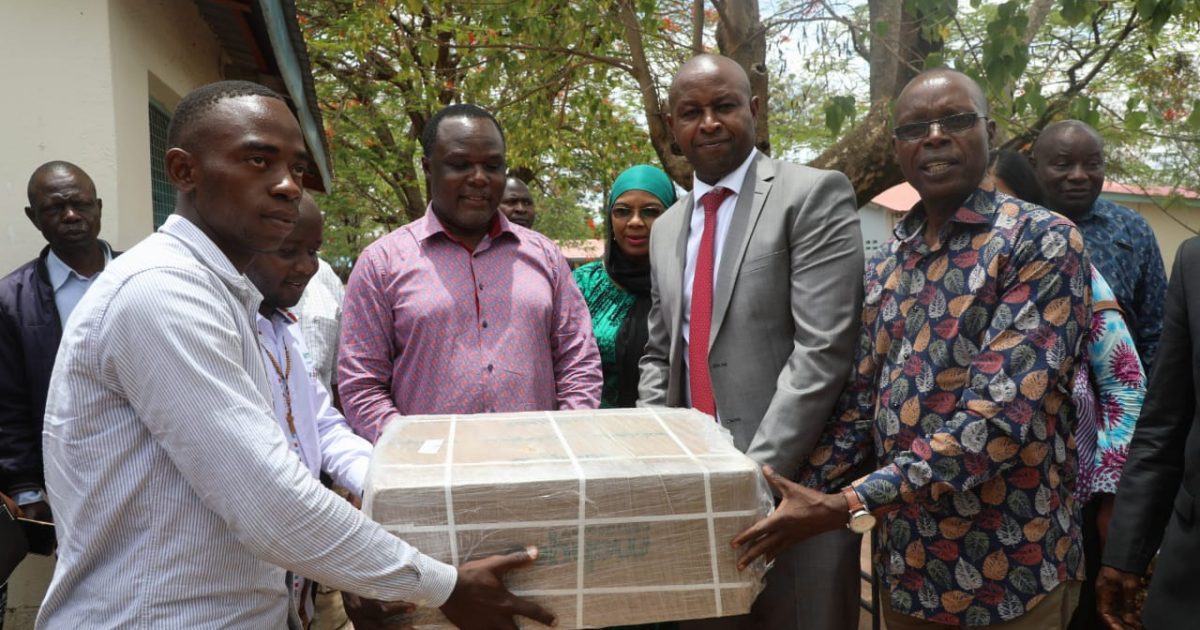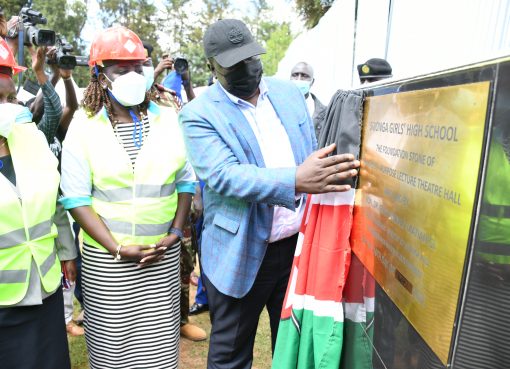The government has embarked on the distribution of 15.8 tonnes of BT cotton seeds to farmers in Nyanza and Western regions to boost production.
State Department for Industry Principal Secretary Dr Juma Mukwana said through partnership with the private sector, the Sh 51 million initiative targets to woo more farmers as the government moves to revive the sub-sector.
Mukwana said the programme will benefit farmers in Kisumu, Siaya, Homa Bay, Migori, Bungoma and Busia counties.
“The farmers will also receive free chemicals and training to ensure that the crop is effectively managed for maximum yields to be realised,” he said. “This targets to scale up cotton production in the country to provide enough raw materials for both state and private cotton industries which have been revived,” he added.
Speaking during the launch of the exercise at Ahero in Kisumu County, Mukwana said the government has revived Rivatex and several ginneries in cotton growing areas but due to poor production the facilities were operating below capacity.
“The State Department for Industry has embarked on establishment of industrial parks in the 47 counties where cotton and textiles will be a flagship. To meet the demand, the industries, are forced to source for cotton outside the country,” he said.
.“These industrial parks will be actively engaged in ginning, clothes and textiles to create employment opportunities for the youth,” he said, and challenged the youth and women to take advantage of the renewed effort to revive the crop and join the bandwagon to reap economic benefits.
Speaking during the same occasion, State Department for Cooperatives Principal Secretary Patrick Kilemi said the seeds being distributed through Savings and Credit Cooperatives (SACCOs) will go a long way in strengthening the cotton value chain in the country.
This, he added, will have a ripple effect on the dairy sub-sector with the cotton seed cake made readily available for production of dairy meal. “A vibrant cotton sector will reduce the cost of production per litre of milk and help us address the shortage of the commodity in the country,” he said.
The government, he said was determined to establish a strong cooperative movement not only for the cotton sub-sector but for all the sectors of the economy. “This was being done through a review of the Cooperatives Act to strengthen governance and safeguard members’ funds,” he added.
Agriculture and Food Authority (AFA) Acting Director General Beatrice Nyamwanu said the renewed focus to rejuvenate the sector was set to scale up production which currently stands at 3, 000 metric tonnes.
She said AFA was committed to ensuring that farmers across the country have access to the right seeds to boost yields and income. “If we don’t have the right seeds, the industry will continue to suffer from lack of raw materials,” she said.
Nyamwanu said BT Cotton, which takes six months to mature, was capable of yielding up to 1, 500 kilograms per acre, offering the best solution to the country’s gap in production.
“So far, 20, 000 farmers have been registered through the various SACCOs, and positive outcomes through the free seeds programme are likely to woo more farmers to the sub-sector,” she said.
Nyamwanu noted that AFA has partnered with county governments in cotton growing areas to scale up extension services to boost yields. “For this variety to thrive, there are agronomic factors which must be employed. AFA has packaged this information and will work together with county governments to build capacity for farmers,” she said.
She said the outcome of the programme will be reviewed after a year to assess the impact and strengthen gaps. “We will monitor how this seed performs in the various counties and make recommendations on where to keep it or use our hybrid seeds. This will then help us to know where we are as a country in terms of production,” she said.
The government approved commercial planting of BT cotton in 2019 following a successful five-year trial which showed positive results.
By Chris Mahandara and Catherine Nyongesa





